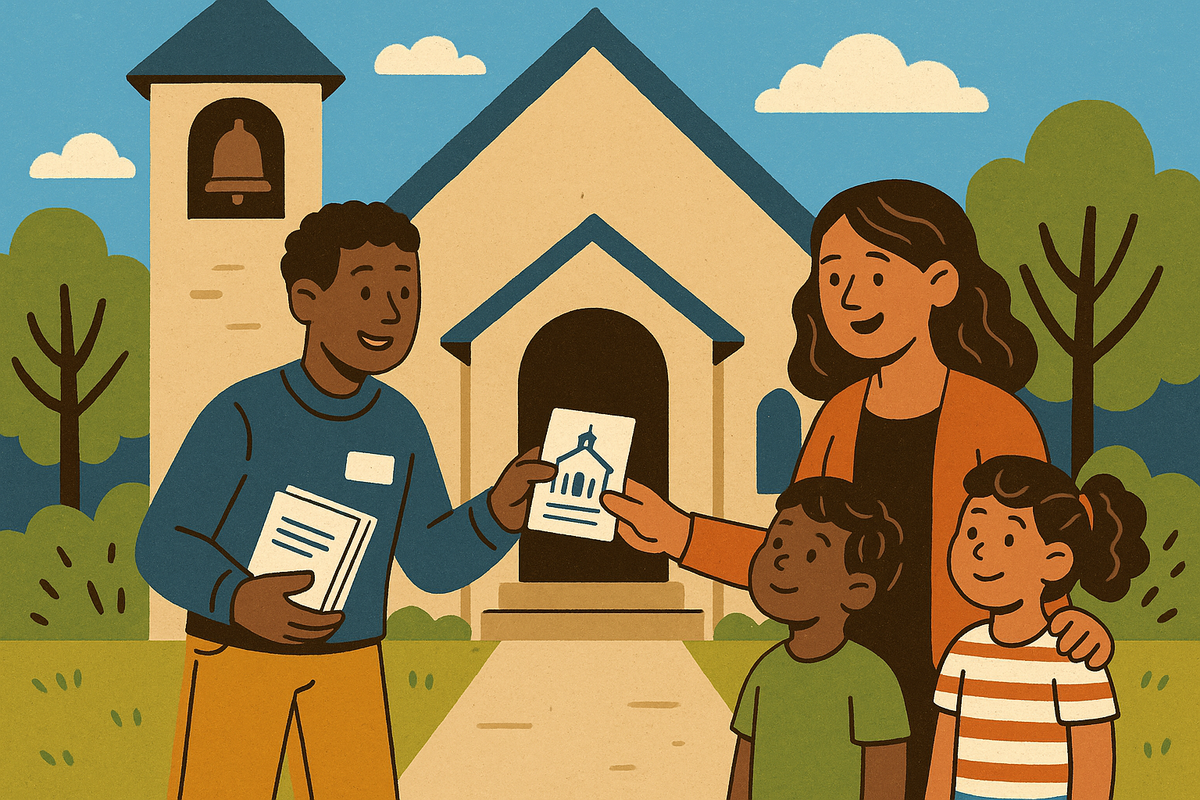Why Google Isn’t Always Ideal for Church Advertising (And What to Use Instead)
Google Ads can be challenging for churches. This guide explains why faith-based ads are often flagged—and how to run effective, compliant campaigns with alternative advertising platforms.

🙏 Faith-Based Ads Are Powerful—But Not Always Welcome on Big Platforms
Digital advertising is a powerful way for churches to share their message, promote events, and grow their community. But if you’ve ever tried running Google Ads for a worship service or Bible study, you may have run into an unexpected wall: disapprovals, restrictions, and inconsistent enforcement.
Even when your messaging is respectful and compliant, Google’s automated ad systems and strict policies can make it hard for churches to get the green light.
🛑 Common Frustrations Churches Face with Google Ads
- Ads mentioning “Christian,” “Bible,” or “faith” get flagged or rejected
- Targeting people near churches or using religious themes can be mistakenly disallowed
- Appeals and reviews are often handled by automated systems, with little nuance
- Ad disapprovals can feel vague, with no clear fix—even when you follow the rules
“We tried running a simple Easter invite ad and it got rejected three times—even though we followed all the rules.”
— Real feedback from a church marketer
📜 What’s Behind the Restrictions? Google’s Religious Ad Policy Explained
Google Ads prohibits the use of personal religious belief in personalized advertising. That means you can't:
- Target users based on their religion
- Reference their faith in ad copy
- Use ad segments tied to places of worship, religious schools, or past religious behavior
Read more on Google’s Personalized Ads Policy.
✅ What Churches Can Still Do on Google Ads
1. Use Radius or ZIP Code Targeting
You can target ads based on location, such as a 3–5 mile radius around your church or specific ZIP codes.
Example: “Looking for a church in North Naples? Join us this Sunday.”
2. Focus on Search Intent
Use tools like Google Keyword Planner to find relevant local search terms.
3. Promote Events, Not Identity
It’s fine to run ads for Vacation Bible School, Christmas or Easter services, and community events—just don’t assume the viewer’s faith.
Example: “Join us for a free Family Fun Night! Games, music, and food trucks this Friday at Grace Church.”
4. Use Contextual Display & YouTube Ads
Target content categories instead of people: parenting blogs, local news, and inspirational videos are great places to show up.
🤨 But Even When You Follow the Rules, It’s Not Always Smooth
Many church marketers report being penalized for compliant content. Google’s automated systems often misread faith-based copy or visuals and appeals rarely lead to resolution.
✅ That’s Why We Built HeyNeighbor
HeyNeighbor is a local advertising platform built specifically for churches, schools, and small community organizations.
We don’t rely on sensitive personal data—but we do let you:
- Promote your mission, events, and values
- Target by address, ZIP code, or neighborhood
- Use faith-based messaging without fear of disapproval
🧾 Google Ads vs. HeyNeighbor for Church Campaigns
| Feature | Google Ads | HeyNeighbor |
|---|---|---|
| Radius/ZIP targeting | ✅ | ✅ |
| Promote services/events | ✅ (with rules) | ✅ (no restrictions) |
| Use faith-based language | ⚠️ Limited | ✅ Fully allowed |
| Personalized targeting by belief | ❌ Prohibited | ❌ Not used |
| Easy ad approval | ⚠️ Sometimes unreliable | ✅ Guaranteed |
📚 Additional Resources
- Google Ads Policy – Personalized Advertising
- Sensitive Interest Categories – Google Ads
- Google Keyword Planner Tool
🙌 Final Thoughts: Focus on Outreach, Not Algorithms
Churches shouldn’t have to battle ad platforms just to spread a message of hope. Whether you're promoting a worship service or a neighborhood outreach event, your focus should be on people—not policy flags.
HeyNeighbor makes that possible.





